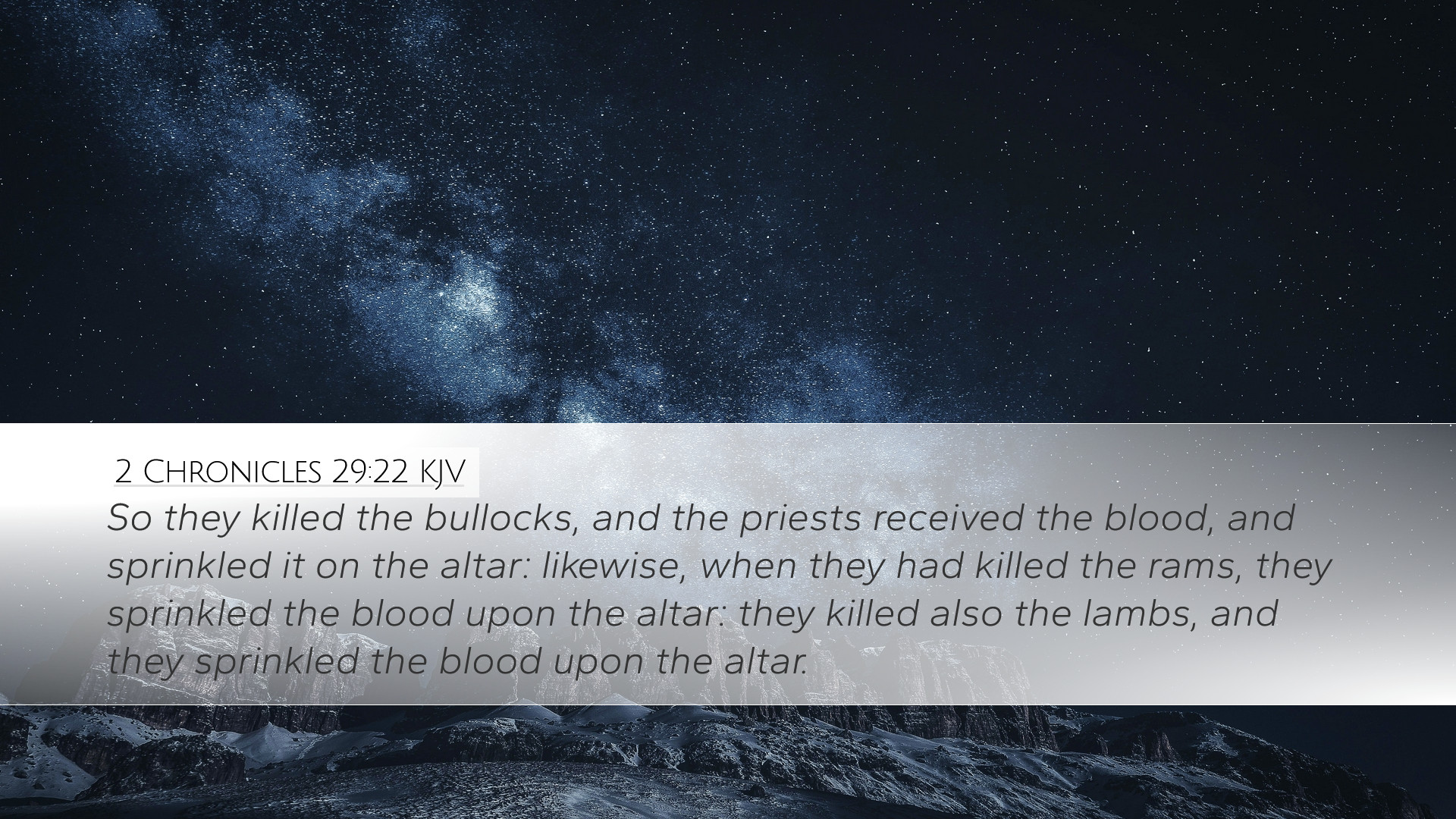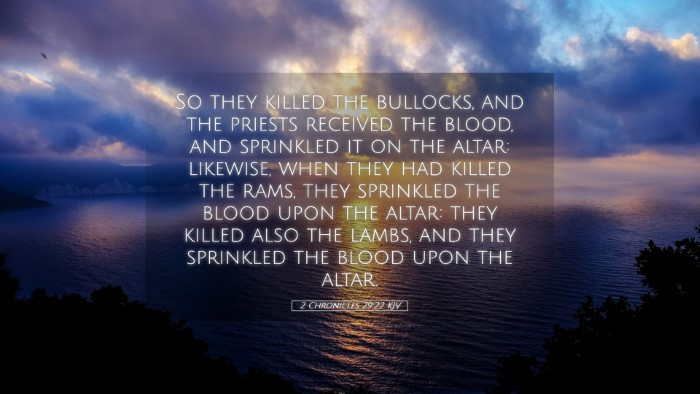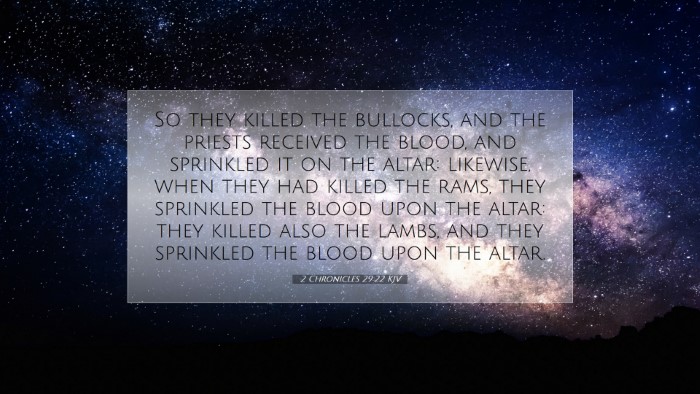Commentary on 2 Chronicles 29:22
Verse Reference: 2 Chronicles 29:22 - "So they killed the bullocks, and the priests received the blood, and sprinkled it on the altar: likewise, when they had killed the rams, they sprinkled the blood upon the altar."
This verse depicts a significant moment during the reign of King Hezekiah, as he sought to restore true worship in Judah after the long-standing neglect of the temple and the worship of Yahweh. The act of sacrificial offerings is central to this restoration process and reveals several theological and practical meanings worth exploring.
Historical Context
Hezekiah’s Reformation: Hezekiah ascended to the throne during a time of spiritual decay. The previous kings had introduced pagan practices that corrupted the worship of the Lord. In the early chapters of 2 Chronicles, we see Hezekiah taking diligent steps to cleanse the temple, remove idols, and reinstate proper worship.
The Sacrificial System
The act of sacrificing bullocks and rams was deeply embedded in the Israelite faith as prescribed in the Mosaic Law. The sacrificial system serves multiple purposes:
- Expiation: Sacrifices were designated to atone for sins, allowing the people to be reconciled with God.
- Worship: Offerings were a means of expressing gratitude and dependence on God, affirming His sovereignty.
- Community Identity: The communal aspect of sacrifices reinforced corporate identity among Israelites as God's chosen people.
The Role of the Priests
The priests are pivotal in this verse as they receive the blood of the sacrifices and sprinkle it on the altar. This action signifies several truths:
- Divine Mediation: Priests act as intermediaries between God and the people, a theme prevalent in both the Old and New Testaments.
- Obedience to Divine Command: The priests faithfully execute their roles as prescribed in the law, demonstrating the importance of adherence to God's directives.
- Purity of Worship: By sprinkling the blood on the altar, priests uphold the sanctity of God’s worship, emphasizing ritual purity.
The Significance of Blood
Blood in Sacrifice: Blood is a significant motif throughout scripture, representing life. According to Leviticus 17:11, "the life of the flesh is in the blood." Therefore, the sacrificial blood signifies atonement and life being offered to God. In this context, the sprinkling of blood is symbolic of a life given for restoration, reflecting the seriousness of sin and the cost of redemption.
Theological Reflections
This verse opens up critical theological considerations:
- Restoration of True Worship: Hezekiah’s actions in restoring the sacrificial system signify a return to authentic worship, free from the pollution of foreign influences.
- God’s Mercy and Grace: The sacrifices illustrate God’s mercy towards His people, enabling them to approach Him despite their unworthiness.
- Foreshadowing Christ: The blood of the sacrifices points towards the ultimate sacrifice of Christ, the Lamb of God, whose shed blood cleanses believers from all sin.
Practical Implications for Worship
For contemporary believers, this verse encourages a return to the essence of worship:
- Reverence in Worship: Recognizing the holiness of God and the seriousness of our approach to Him.
- Value of Sacrifice: Understanding the cost of following Christ and the willingness to surrender our lives in dedication to God.
- Community in Worship: As seen in Hezekiah’s time, communal worship is vital. Believers are called to gather and support one another in faith.
Conclusion
2 Chronicles 29:22 encapsulates a vital moment in Israel's history and expresses profound truths about sin, atonement, and worship. For pastors, theologians, and students alike, this verse serves as a reminder of God’s redemptive plan throughout history and the call to genuine worship that is responsive to His grace.


